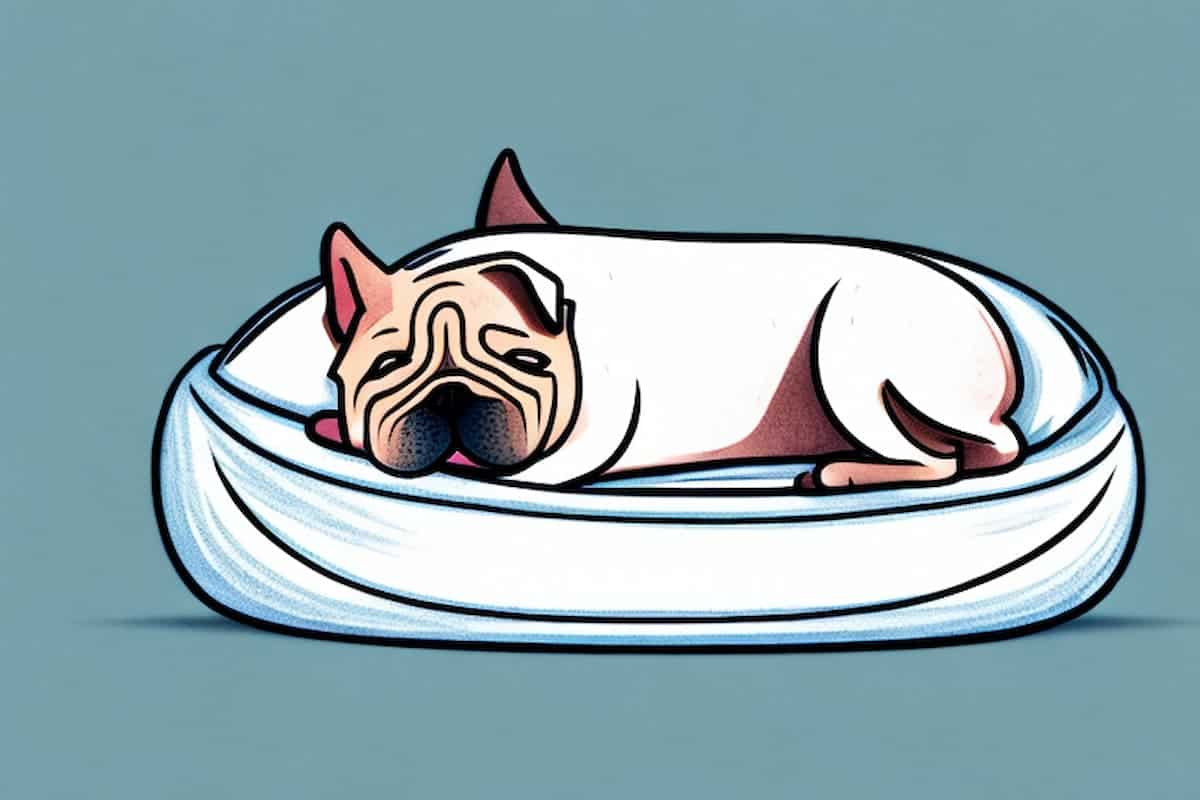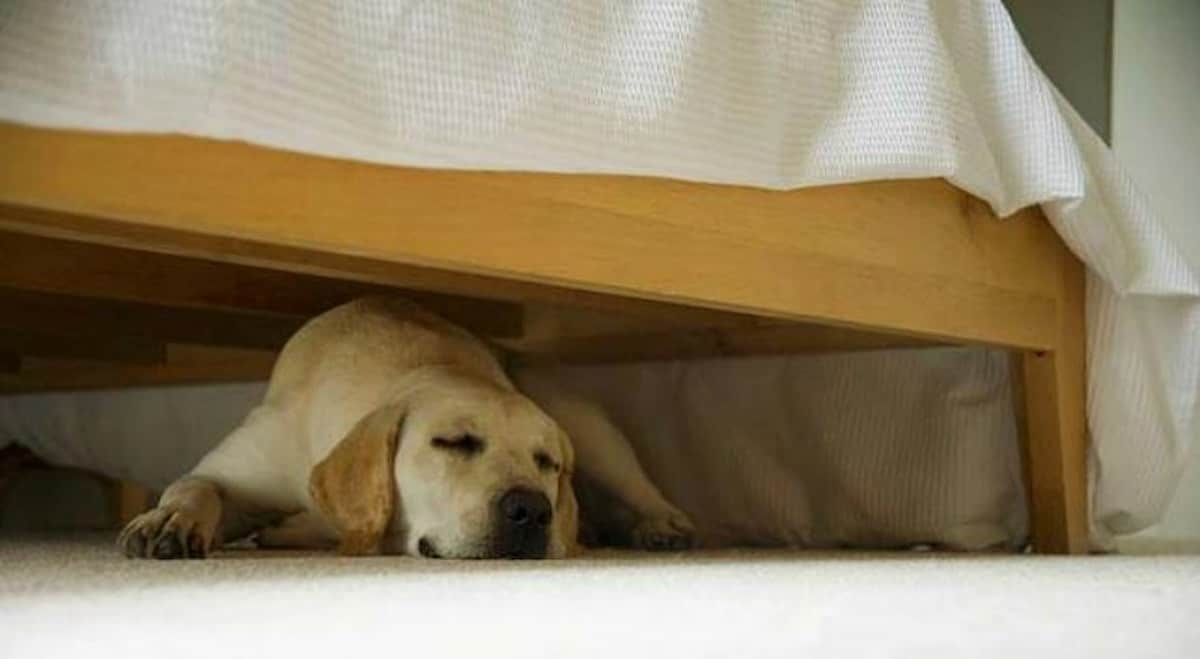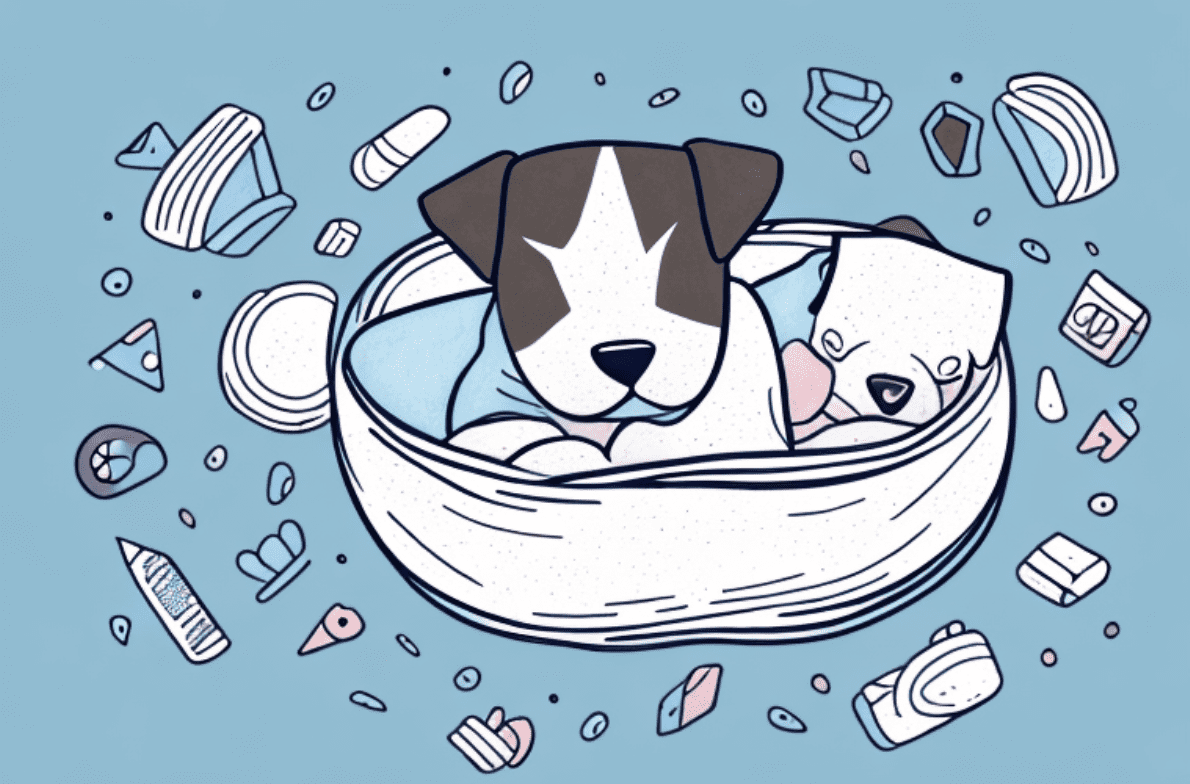Dogs are some of the most beloved animals around. We humans welcome them into our lives as loyal companions and trust their presence to bring comfort, even in difficult times. One thing is certain: these four-legged friends of ours require a good night’s sleep to stay healthy and happy. As such, we need to understand our canine companions’ sleep needs and habits.
How Much Sleep Do Dogs Need?
Dogs require more sleep than most other animals and need around 12-14 hours of sleep per day, if not more. Puppies usually require about 18-20 hours of sleep per day, because their bodies and brains are developing rapidly and need plenty of rest for growth. Older dogs, however, require less and still need around 12-14 hours of sleep. It is important to understand that breed and size also impact dogs’ sleep requirements and patterns.
The amount of sleep a dog needs also depends on their activity level. Dogs that are more active during the day may need more sleep to recover and recharge. On the other hand, dogs that are less active may need less sleep. Additionally, the environment in which a dog sleeps can also affect their sleep needs. Dogs that sleep in a noisy or bright environment may need more sleep to make up for the disruption.
Factors That Influence a Dog’s Sleeping Habits
The number of hours a dog sleeps depends on a variety of factors. Some breeds have a more active lifestyle, which means they are more prone to shorter sleep cycles than other breeds. Age is also an important factor to consider. Puppies need more sleep than older dogs because of their developing bodies and brains. Activity level also influences how much dogs sleep; more active dogs will tend to require less sleep. Additionally, the environment in which the dog sleeps can affect their sleeping behavior.
The temperature of the room can also have an effect on a dog’s sleeping habits. Dogs tend to sleep better in cooler temperatures, so it is important to make sure the room is not too hot or too cold. Additionally, the presence of other animals or people in the room can also influence a dog’s sleeping habits. Dogs may be more likely to sleep if they feel safe and secure in their environment.
Common Sleep Problems in Dogs
Just like humans, some dogs may experience sleep problems like insomnia or difficulty sleeping through the night. This is typically caused by stress, anxiety, or environmental changes. If you notice your dog is having difficulty sleeping, you should take them to the vet to identify the underlying cause.
In addition to visiting the vet, there are some things you can do to help your dog get a better night’s sleep. Make sure your dog has a comfortable bed in a quiet, dark area of the house. You can also try providing them with a calming treat or supplement before bedtime. Finally, make sure your dog is getting plenty of exercise during the day to help them relax and sleep better at night.
Creating a Peaceful Sleeping Environment for Your Dog
Creating an inviting and peaceful sleeping environment is one of the best things you can do for your canine best friend. Make sure their bed is comfortable and warm and that they have access to a quiet room away from any noise or distractions. Your dog’s sleeping area should also be free from other animals and be placed away from any drafts or extreme temperatures. As much as possible, try to establish a consistent bedtime routine that will help your dog shape their natural sleeping patterns.
In addition to providing a comfortable sleeping area, it is important to make sure your dog has plenty of exercise during the day. Regular exercise will help your dog stay healthy and tire them out so they can sleep better at night. You should also make sure your dog has access to plenty of fresh water and a healthy diet. This will help ensure that your dog is getting the nutrition they need to stay healthy and happy.
How to Tell if Your Dog is Getting Enough Sleep
If your dog does not seem to be getting enough quality sleep, you may notice signs such as increased irritability, decreased activity levels, or reduced appetite. If left unchecked, lack of sufficient sleep can lead to long-term health issues for your pet. Therefore, it is important to observe their sleeping patterns and behavior and be attentive to any changes.
It is recommended that dogs get between 12 and 14 hours of sleep per day, depending on their age and breed. If your dog is not getting enough sleep, you may want to adjust their daily routine to ensure they are getting enough rest. This could include providing a comfortable bed in a quiet area, limiting their exposure to noise and light, and providing plenty of exercise during the day.
Tips for Improving Your Dog’s Sleep Hygiene
Like humans, some dogs may need help establishing healthy sleeping habits. Many experts suggest providing comfortable sleeping surfaces and regular exercise; establishing a consistent bedtime routine; reducing exposure to sources of stimulation such as loud music or bright lights; avoiding caffeine; and limiting meals before bedtime. Creating a consistent routine and providing your dog with a comfortable and inviting sleeping environment will help ensure they get the rest they need.
Benefits of Adequate Sleep for Dogs
Adequate sleep is essential for proper physical and mental health in dogs. Some of the benefits include enhanced immune system function; improved mood and behavior; support for vital organs such as the heart and lungs; better concentration, learning ability, and memory; and proper muscle growth. A lack of quality sleep can lead to long-term health issues for your pet so it is important to promote healthy sleeping habits for your canine friend.
Dogs are loyal companions who rely on us for their wellbeing. Understanding the sleeping habits of man’s best friend can go a long way in ensuring they stay healthy and happy. By creating a peaceful sleeping environment and establishing regular sleep patterns, you can help ensure your beloved pup is getting quality rest they need.





